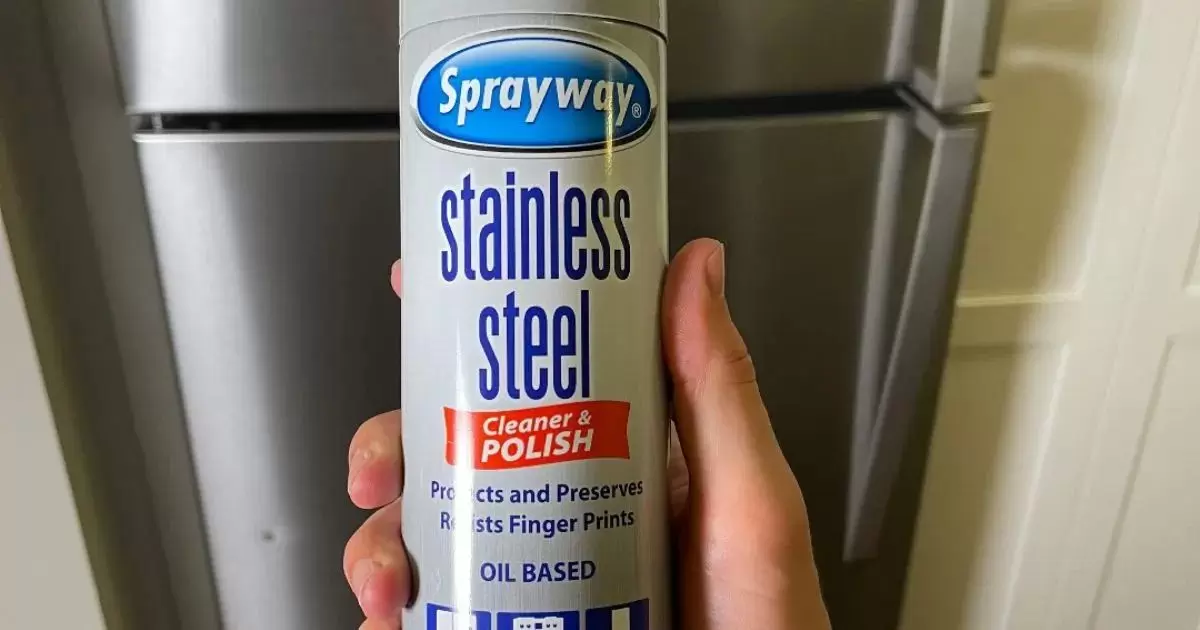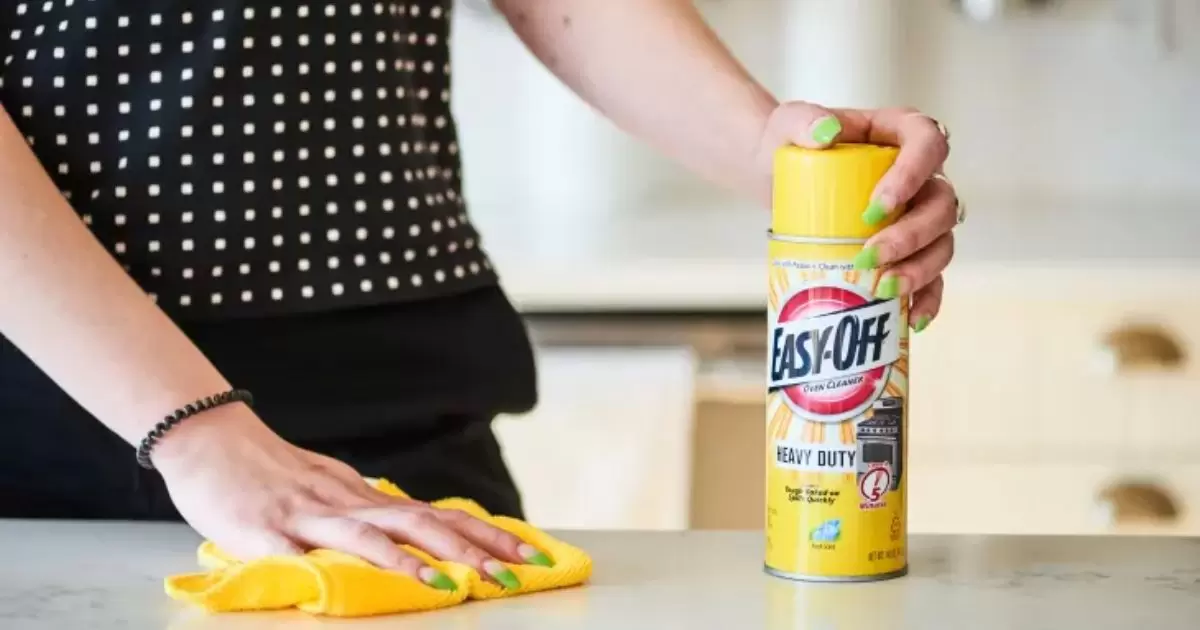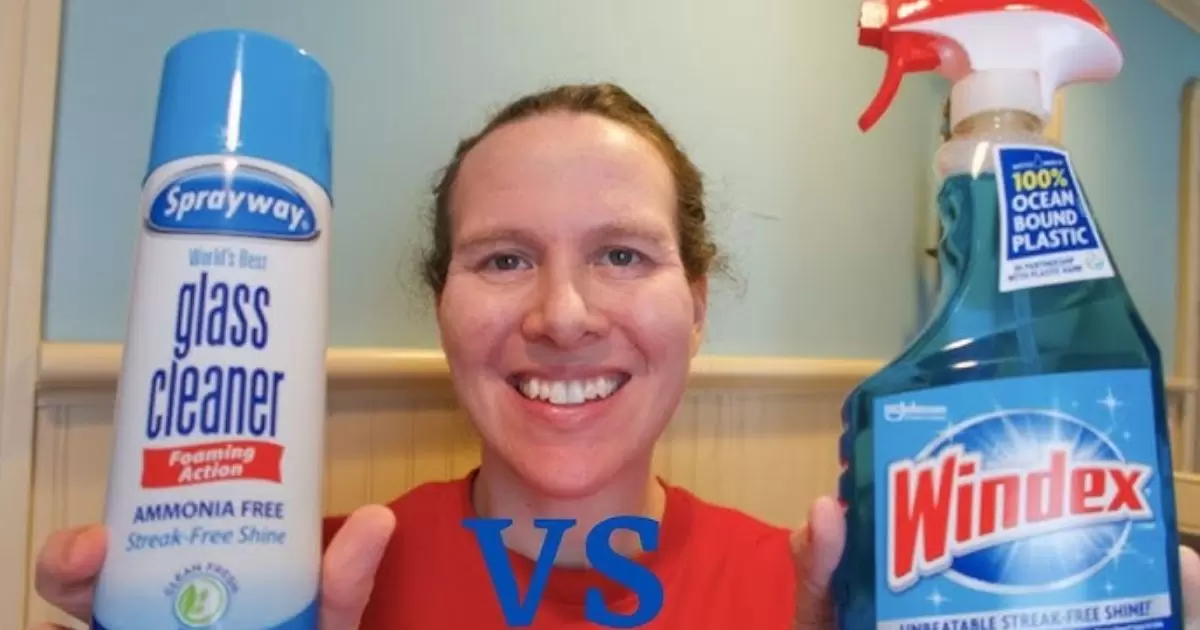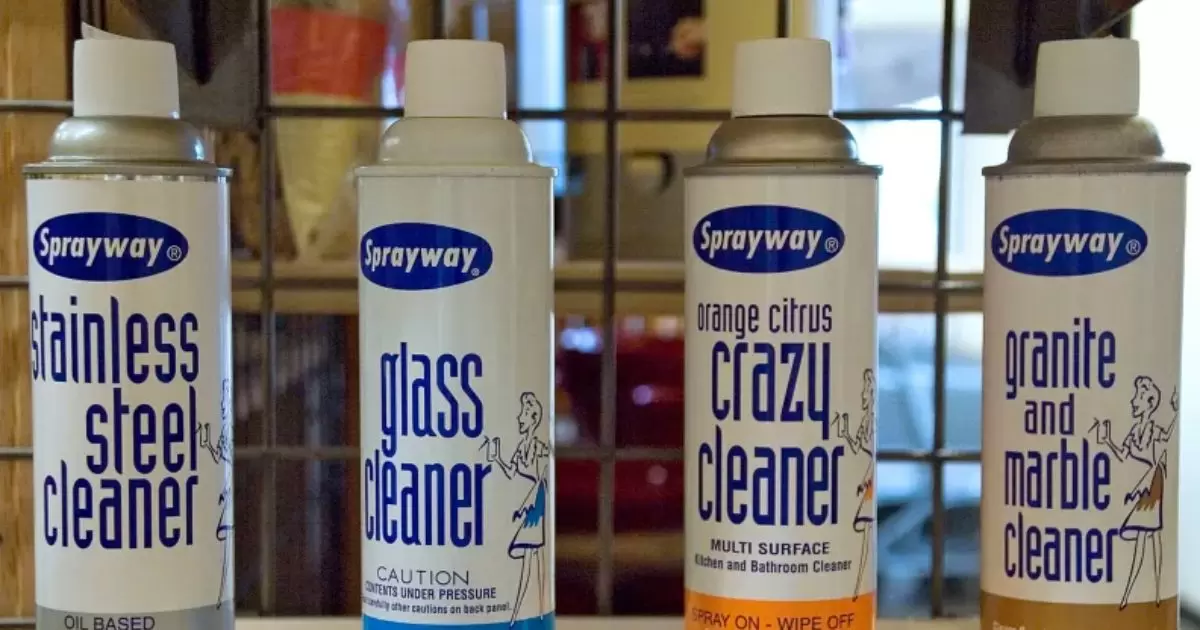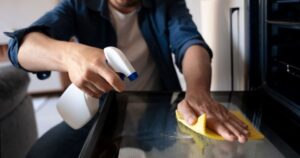Stainless steel requires unique cleaners to maintain its shine and save you damage. Sprayway glass cleaner might also comprise chemical compounds that could harm stainless steel surfaces, main to corrosion or discoloration over the years.
With its streak-free cleaning power on glass and mirrors, it’s tempting to grab that bottle of Sprayway foaming glass cleaner when your stainless steel fridge or appliances need a shine. But is it an effective and safe choice?
Cleaning stainless steel properly is key to maintaining its durability and shine. When needing to wipe down stainless steel surfaces, a common question that arises is whether all-purpose cleaners formulated for other materials can be safely used or if they will damage the steel.
What is Sprayway Glass Cleaner
Sprayway Glass cleaner is a household cleansing product in particular designed for use on glass, home windows, mirrors, and other hard surfaces. It incorporates mild elements like water, ethoxylated alcohol, and sodium citrate. It facilitates doing away with smudges, fingerprints, dirt, and so on without leaving in the back of streaks or residue. does stainless steel jewelry turn green?
Is Sprayway Glass Cleaner Safe for Stainless Steel?
The primary energetic substances in the Sprayway glass purifier are water, ethoxylated alcohols, and sodium citrate. Those gentle elements are secure for plenty of household surfaces while used as directed, which includes stainless steel. But, it’s always satisfactory to identify and check any purifier on a small, inconspicuous area first to test for any reaction with the steel‘s defensive layer.
Benefits of Using Sprayway Glass Cleaner on Stainless Steel
If spot testing shows that Sprayway glass cleaner is compatible with your stainless steel, using it can offer several benefits. Like glass, stainless steel shows water spots and streaks easily. Sprayway’s formula helps wipe surfaces clean without heavy residue. The cleaner will not scratch or damage the stainless steel’s delicate brushed finish when used correctly with a soft cloth.
Sprayway glass cleaner does not contain alcohol, which can dry out and corrode stainless steel over time. Its gentler formula is less likely to cause damage. Unlike some harsh chemical cleaners, Sprayway leaves behind a light, pleasant scent instead of strong fumes. how to use a glass cleaner?
Fixing Damage
If discoloration or corrosion occurs on stainless steel, here are potential fixes:
- Gently polish with baking soda and water paste
- Use vinegar to dissolve rust spots
- For stubborn deposits, apply citric acid
- Ensure future protection with sealants
Catching and rectifying issues early prevents permanent damage.
Advantages and Disadvantages of Using Sprayway Glass Cleaner on Stainless Steel
Potential Benefits
Sprayway glass cleaner effectively cuts through grease and dirt, making cleaning easier. Its foaming action clings to vertical surfaces, ensuring thorough coverage. The cleaner dries streak-free, leaving stainless steel surfaces looking polished. It’s widely available in stores, offering convenience for users.
Potential Risks
Prolonged use of Sprayway may lead to scratches on stainless steel surfaces. On brushed stainless steel, it could leave behind a cloudy residue, affecting its appearance. The presence of ammonia in the cleaner poses a risk of damaging stainless steel with extended use. The fragrance and dye in the cleaner could potentially stain surfaces.
Precautions When Using Stainless Steel
Even as Sprayway glass cleaner is commonly safe for stainless steel, take those precautions: Spot test first on a small vicinity to ensure the cleaner does not discolor or damage the finish. Use sparingly and don’t permit the extra cleaners to sit down or pool on the surface. Wipe the surface thoroughly after cleaning to eliminate any residue.
Dry immediately with a clean soft cloth to prevent water spots. Rub gently as aggressive scrubbing can lead to light scratching over time. Clean with the grain by rubbing parallel to any brushed grain lines on the steel.
Expert Tips for Cleaning Stainless Steel
Follow these expert tips when using Sprayway or any cleaner on stainless steel: Wipe with microfiber cloths to prevent lint and scratches. Use distilled white vinegar for hard water spots. Remove oil/grease with dish soap before glass cleaner. Apply rubbing alcohol to restore shine. Avoid bleach, ammonia, abrasives, and steel wool.
Contact an appliance specialist if you notice these issues: Rust or corrosion, deep scratches, discoloration not removed with typical cleaning, and mineral deposits from hard water. Professional techniques like buffing and passivation can restore stainless steel’s protective layer if damage occurs over time.
| Cleaner | Benefits | Considerations |
| Dish Soap | Removes grease/oil
Low cost Widely available |
Must rinse thoroughly to prevent streaking |
| White Vinegar | Breaks down residue
Non-toxic Low cost |
The smell dissipates when dry
May require occasional polishing |
| Club Soda | Gentle carbonation lifts dirt
No streaking |
Must wipe dry quickly to prevent water spots |
| Stainless Steel Polish | Protective barriers
Enhanced shine Can fill scratches over time |
Higher cost
Some contain abrasives |
Expert Cleaning Recommendations
For routine stainless steel care, simple solutions like dish soap and water, diluted white vinegar, club soda, or commercial stainless steel cleaners work effectively. Occasionally, Sprayway glass cleaner can be used on stainless steel if tested on a small spot, rinsed well, and only for light cleaning. Manual cleaning involves rinsing with warm water, applying the chosen cleaner, gently scrubbing, thoroughly rinsing, and completely drying with a soft cloth. Exercise caution with Sprayway on stainless steel for regular use to avoid potential damage.
FAQs:
What surfaces can Sprayway Glass Cleaner be used on?
Sprayway Glass cleanser may be used on glass, mirrors, windows, and maximum difficult surfaces like stainless-steel home equipment.
What cleaning products should not be used on stainless steel?
Avoid abrasive cleaners, metal wool, bleach, ammonia, and acidic or alkaline cleaners which can harm chrome steel finishes.
What is the best cleaner for stainless steel?
Sprayway chrome steel cleanser is specifically formulated to easily, polish and shield stainless-steel surfaces without damaging them.
What do professionals clean stainless steel with?
Experts regularly use microfiber cloths, distilled white vinegar, dish soap if very dirty, and rubbing alcohol to restore shine to stainless steel.
How do you clean very dirty stainless steel?
If stainless steel is very dirty first degrease with dish cleaning soap, then use Sprayway stainless steel cleaner, rinse, and dry right away with a tender cloth.
Conclusion:
In conclusion, creating a sublimation coating for stainless steel involves a few key steps. First, you need to prepare a mixture of polyacrylic and water or use a product like Subli Glaze or Poly Gloss. After cleaning the stainless steel surface, possibly with a product like Sprayway glass cleaner, you apply the coating mixture.
It’s important to apply it evenly and let it dry before proceeding with the sublimation process. It’s worth noting that while Sprayway glass cleaner is effective on glass, its suitability for stainless steel should be confirmed to avoid potential damage.
The question Can you use Sprayway glass cleaner on stainless steel? is thus crucial to ensure the longevity of your sublimation projects.
